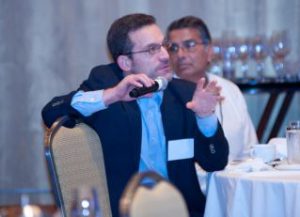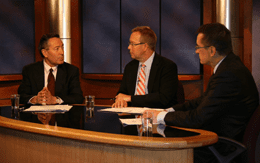 What a move by GlaxoSmithKline, they are no longer paying speakers for speaker programs beginning in 2016. I have attended many speaker programs throughout my career. They’re usually a gathering of local clinicians, led by a Key Opinion Leader (KOL) who can help elucidate some important information, and are facilitated by a pharma/device company.
What a move by GlaxoSmithKline, they are no longer paying speakers for speaker programs beginning in 2016. I have attended many speaker programs throughout my career. They’re usually a gathering of local clinicians, led by a Key Opinion Leader (KOL) who can help elucidate some important information, and are facilitated by a pharma/device company.
Many of the programs had significant impact on the attendees and I can recount many specific situations where attendees weren’t aware of a possible side effect, contraindication, warning within the label, indication, or how a drug was to be appropriately dosed. Clinicians, in my experience, came to programs to learn how to better care for the patients in a particular disease state. There were those who just attended for a free dinner, but due to industry standards and current best practices, there isn’t much that’s lavish about the limited value of a free pharma dinner these days.
I specifically remember a company-sponsored dinner event that I attended in northern New Jersey. The endocrinologist who attended was very curious about a product that was less than two years old. She had many questions for the speaker since she had just started prescribing the product. At that dinner, she was asking about a particular patient, who she was concerned was experiencing a side effect from the drug. While the side effect wasn’t in the label, and still isn’t, she said that she was going to take the patient off the medicine. The speaker didn’t dissuade her. He agreed that since he wasn’t familiar with that particular effect, the company needed to get her more information and that she might want to put the patient on another product that he recommended, until she learned more. These discussions were out loud and in front of the entire audience. The program wasn’t an advertisement, as there was more conversation about possible side effects than the effectiveness of the product. I’ve never seen that in a television commercial.
In my experience, this has been typical of paid speakers. They don’t compromise their opinions, even if they are paid to share their thoughts. Their reputation is on the line, as it is every day when they see patients or conduct research, and the last thing that reputable speakers would allow is to be influenced by honoraria. After all, this speaker was only being paid the Fair Market Value (FMV) comparable to what he would’ve made in his clinic.
If pharma companies stop paying speakers to speak about new products and technologies, then from where will the education come? Who will advocate for patients about new—and even more challenging, existing technologies? Does this lead to increased costs by having more government involvement or reverting back to Continuing Medical Education programs, which pay speakers without using FMV standards?
I trust doctors to do the right thing because they have difficult jobs, and as part of their position, they’ve taken an oath to “first do no harm.” KOLs and other physicians who act as contracted agents for pharma have been chosen because they are reputable and are known by their peers to do what’s right. There are always those rare professionals who have problems with ethics and integrity; in this industry, those individuals need to be removed from speaker’s bureaus, plain and simple. Today, systems are in place to ensure that pharma companies are only paying speakers what they would make in their practice by using principles of Fair Market Value.
Speaker programs provide a fantastic forum for peer-to-peer discussions. In the end, the goal is to improve patient care by providing better pharmaceutical insight through the physicians who care for patients.





